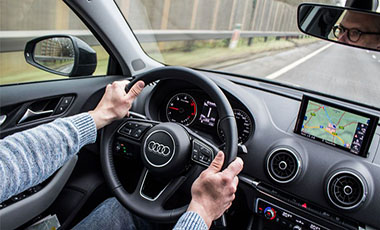Vehicle sanitation is the key, the primary, the quintessential service anyone and everyone with a vehicle should have at least twice a month. Why? Well, to begin with let’s note, globally we all just went through one of the worst pandemics in recorded history…. and it continues in America and abroad at the present. So how does vehicle sanitation impact the pandemic and various diseases with the potential to cause damage to our health? Vehicle sanitation is a clinical removal of harmful bacteria, pathogens, and debris. The same clutter and dirt we often overlook hold millions of microbes that attack the skin, mucus membranes of the eyes, nose, and mouth, and once in the lungs, many cause a number of congestive breathing challenges. From the common cold to COVID-19, the potential for disease to be waiting on us in dirty, dusty, nasty vehicles is high.
Considering the variety of dirt we can experience, let’s consider the various sources. There is inorganic and organic debris. Usually both types are mixed together in a microscopic junkyard we wouldn’t want to walk through or touch, but millions of us sit and breath it all in daily. Inorganic debris is industrial solid and airborne pollution, chemicals, fossil fuels (gasoline, diesel), auto fluids and waste, trash (industrial, residential, commercial) and other substances such as concrete, asphalt, plastic, sand, metal, and dust. Organic debris is mud, soil, dirt, dust, tar, dumpster juice, street and sewer debris, food refuse, cigarette butts, pet dander, pet wastes, human hair and dandruff, bird droppings, blood, bugs, sap, resin, soot, and plant waste (grass, twigs, and leaves).
With the consideration of all the debris that could be in your vehicle, you may be apprehensive to get back in. However, Bentley Brandon of Luxury Wash USA has the solution: a deep, comprehensive cleaning known as vehicle sanitation. The concept behind vehicle sanitation is evident in the clinical cleaning you witness in grocery stores and hospitals. The deep cleaning synonymous with the sharp spell of strong antibacterial, sporicidal, dirt-removing cleaners. Think about it, hospitals and grocery stores, gym facilities and restaurants, buses, trains, and planes, even churches and schools are key places where people bring in their fair share of dirt and debris that can be harmful to their health and others, so clinical sanitation is necessary.
On March 18, 2020, Bentley Brandon of Luxury Wash USA and Aerobiology Laboratory of Smyrna, Georgia conducted a study to address the potential for harmful microbial material to be present on and within vehicles. These microbes included bacteria, spores, and viruses. Shockingly, the study revealed the presence of anthrax in one vehicle, indicating the potential for other harmful pathogens such as COVID-19. The potential for diseases in vehicle interiors is evident on vinyl, leather, plastic, glass, chrome, metal, and rubber as well as cloth, carpet and combinations of materials found within interiors. The Bentley Brandon-Aerobiology (2020) study noted that in an average vehicle, the CFU or colony-forming unit of measure was high with 250 bacteria per square inch.
In order to be proactive in disease prevention, the Bentley Brandon-Aerobiology study posed a vehicle sanitation frequency of two to three times per month. Based on the Bentley Brandon-Aerobiology study, Governor Kemp of Georgia in his State of the State address in April 2020 stressed the need for vehicle sanitation as a primary means to reduce and eventually eradicate COVID-19 like so many contagious diseases of at the present time.
Unfortunately, vehicles are cleaned less than homes, so the transfer of disease from vehicles to other places continues the cycle of contamination and health problems. Therefore, it’s every driver’s duty to change his or her behavior by embracing the philosophy that vehicle sanitation is a health-conscious need versus a matter of vehicle maintenance alone. Your vehicle is an extension of you and impacts your overall well-being, so do the most to take care of yourself and your vehicle.
National Car Wash Day COVID-19 Prevention Vehicle Sanitation

